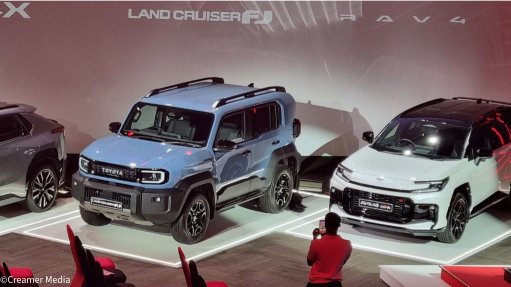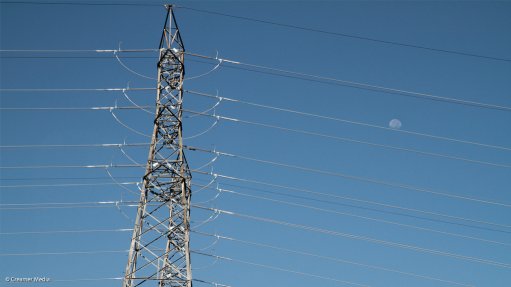Technical expert calls for power-, environment-saving lighting standards to be promulgated
Industrial technical standards and best practices expert and nonprofit organisation CLASP energy efficiency lighting expert Michael Scholand is calling on the Department of Trade, Industry and Competition (DTIC) to promulgate compulsory specification VC9109, which sets out energy efficiency standards for general service lamps (GSL) typically used in households and which would deliver significant electricity and emissions savings, as well as financial benefit to consumers.
The compulsory specification was published in the Government Gazette in March 2021 for public comment, but has not been implemented.
If implemented, it would facilitate a transition to light-emitting diode (LED) lamps, which use much less electricity, are cheaper to manufacture and do not contain hazardous materials compared with other lamps.
“More than 90% of the fluorescent and compact fluorescent lamps (CFL) in South Africa end up on landfills. These lamps contain mercury, an element which does not degrade, poisoning the land and water in perpetuity,” Scholand says.
He notes that an independent impact assessment conducted in 2018 estimated that this standard, if implemented, would deliver a net economic benefit of R11.7-billion over a 15-year period, mostly in electricity cost savings, while also reducing the load on the grid, especially during peak demand periods.
“The sooner South Africa and the rest of the world gets rid of fluorescent lamps, the better. The new standard VC9109 will bar the sale of CFLs and move the market to more energy efficient LEDs, which have better performance metrics.
“LED bulbs use half the amount of electricity to produce the same amount of light as a CFL,” Scholand explains.
There are no job impacts arising from the regulations because South Africa does not manufacture CFLs.
Scholand points out that the Department of Mineral Resources and Energy (DMRE) wants to introduce technical performance standards for GSLs. This effort is an extension of the DMRE’s Standards and Labelling (S&L) Programme, which is a proven policy tool that is being actively used in more than 80 countries around the world.
S&L programmes set minimum standards that products must meet in order to be sold in a country. They are typically revised every three to five years and they protect consumers against dumping of poor-quality products, while promoting and rewarding industry innovation.
“S&L is a key initiative of the DMRE’s National Energy Efficiency Strategy, with performance standards for large residential appliances being adopted in 2015. The DMRE sets policy but relies on DTIC agency the National Regulator for Compulsory Specifications (NRCS) for market implementation and compliance, as the NRCS mandate has an environmental component,” Scholand explains.
The NRCS regulates the market through a third-party conformity approach, which is global best practise as manufacturers and importers must demonstrate compliance to get a three-year letter of authorisation to sell into the South African market. The regulator then undertakes market surveillance activities (MSA) to ensure ongoing compliance.
In response to a Parliamentary committee question submitted by the Democratic Alliance in July, Trade, Industry and Competition Minister Ebrahim Patel said new GSL standards specifications are expected to be published in the Government Gazette by September.
Additionally, Scholand stresses that the DMRE’s work to strengthen the energy efficiency standards on household appliances should also be promulgated. Efforts such as these would align DTIC with DMRE efforts to jointly implement South Africa’s Energy Efficiency Strategy, he adds.
ENVIRONMENTAL IMPORTANCE
Scholand notes that the regulation only applies at the point of sale. It does not require the removal of existing lamps already installed and in use. It will mean that when a consumer wants to replace a bulb, they will buy a mercury-free, more energy-efficient and longer-lasting LED bulb.
“CLASP has looked at the scientific research on lighting and confirmed that LEDs have the least environmental impact of the different lighting technologies.
“Having lower wattages means LED drivers and heat-sinks can be smaller, lowering the bill of material costs for manufacturers. Overall, LEDs produce more light per watt and last significantly longer than other lighting technologies,” he says.
Further, LEDs do not contain any hazardous mercury and are compliant with the European Restriction of Hazardous Substances Directive.
Scholand, who is familiar with South Africa's energy efficiency S&L processes, says the standard developed in 2018 to 2019 remains current with international lighting standards. Europe adopted a similar and comparable set of standards for lighting in 2019, which took effect in September 2021.
He notes that there have not been any material technical objections raised against VC9109.
He points out that there was a secondary criticism levelled against the new lighting standard by some in the industry, which claimed the NRCS’s market surveillance practices were ineffective.
“They are worried that the regulations would not be enforced and that their members would be undercut by unscrupulous companies bypassing the regulation,” he says.
However, this is a lack of confidence in enforcement, not an objection to the specifications themselves, says Scholand.
Improving enforcement is an issue that many governments are working on and can be addressed directly rather than objecting to a proven energy saving policy tool like VC9109, he says.
“The regulations only set a minimum standard. LED brands can work to differentiate themselves with better-performing LED lamps, as the regulations offer power allowances for smart features, such as colour control, remote operation and dimming, among others,” he notes.
Article Enquiry
Email Article
Save Article
Feedback
To advertise email advertising@creamermedia.co.za or click here
Press Office
Announcements
What's On
Subscribe to improve your user experience...
Option 1 (equivalent of R125 a month):
Receive a weekly copy of Creamer Media's Engineering News & Mining Weekly magazine
(print copy for those in South Africa and e-magazine for those outside of South Africa)
Receive daily email newsletters
Access to full search results
Access archive of magazine back copies
Access to Projects in Progress
Access to ONE Research Report of your choice in PDF format
Option 2 (equivalent of R375 a month):
All benefits from Option 1
PLUS
Access to Creamer Media's Research Channel Africa for ALL Research Reports, in PDF format, on various industrial and mining sectors
including Electricity; Water; Energy Transition; Hydrogen; Roads, Rail and Ports; Coal; Gold; Platinum; Battery Metals; etc.
Already a subscriber?
Forgotten your password?
Receive weekly copy of Creamer Media's Engineering News & Mining Weekly magazine (print copy for those in South Africa and e-magazine for those outside of South Africa)
➕
Recieve daily email newsletters
➕
Access to full search results
➕
Access archive of magazine back copies
➕
Access to Projects in Progress
➕
Access to ONE Research Report of your choice in PDF format
RESEARCH CHANNEL AFRICA
R4500 (equivalent of R375 a month)
SUBSCRIBEAll benefits from Option 1
➕
Access to Creamer Media's Research Channel Africa for ALL Research Reports on various industrial and mining sectors, in PDF format, including on:
Electricity
➕
Water
➕
Energy Transition
➕
Hydrogen
➕
Roads, Rail and Ports
➕
Coal
➕
Gold
➕
Platinum
➕
Battery Metals
➕
etc.
Receive all benefits from Option 1 or Option 2 delivered to numerous people at your company
➕
Multiple User names and Passwords for simultaneous log-ins
➕
Intranet integration access to all in your organisation


















